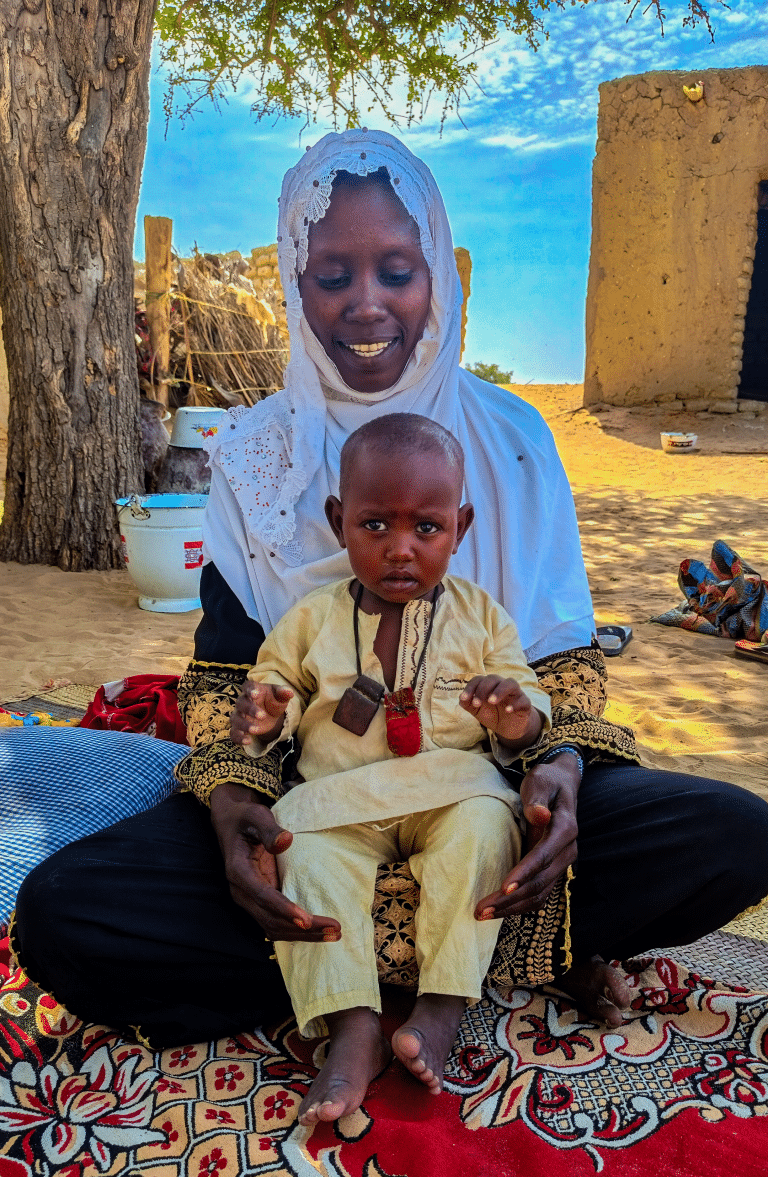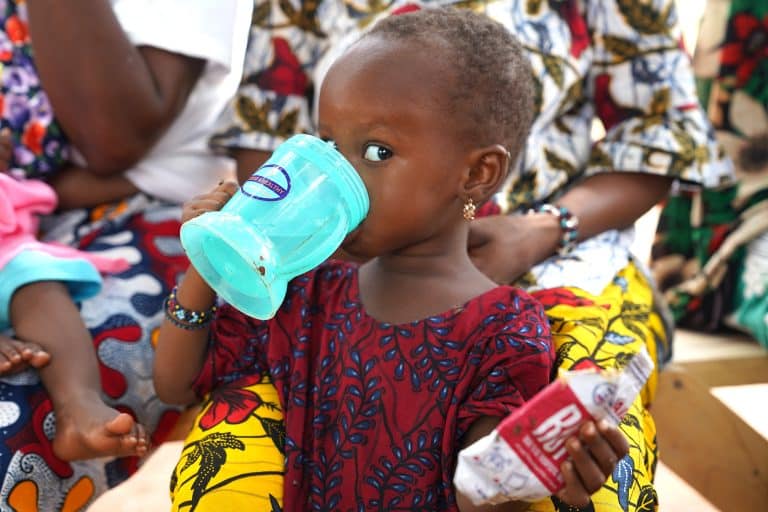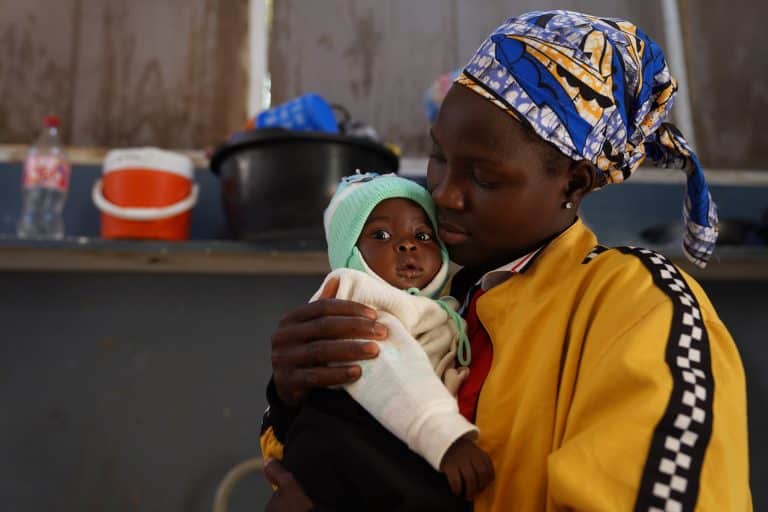In Cameroon, according to the United Nations Population Fund (UNFPA), approximately 18,000 women live with obstetric fistula, with 2,000 new cases each year. Obstetric fistula is a condition that women find difficult to discuss, trapping them in silence, and hindering them from healing, while also causing significant emotional damag
This condition, resulting from a difficult childbirth, is defined by the UNFPA as “a hole between the birth canal and bladder and/or rectum, it is caused by prolonged, obstructed labour without access to timely, high-quality medical treatment. It leaves women and girls leaking urine, faeces or both, and often leads to chronic medical problems.” This description highlights the taboo nature of this injury.
At the Maroua Regional Hospital in the Far North of Cameroon, ALIMA and its partners, the Association to Combat Violence against Women in the Far North (Association pour la Lutte contre les Violences faites aux Femmes dans l’Extrême Nord, ALVF-EN) and the Maroua Regional Hospital offer reconstructive surgery to many women suffering from obstetric fistula. ALIMA provides free care, including awareness, identification, psychological preparation, surgery, and post-operative stay. Beyond the medical treatment, ALIMA supports women who have undergone the surgery in their social and economic reintegration by providing income-generating activities.
The women’s stories describe the physical pain, isolation, and social humiliation caused by their incontinence, as well as the hope and opportunities for healing after years of suffering.
In the Shadow of Childbirth
Haouat, 48, divorced, shares her ordeal that began when she was 23. “I feel like I died 25 years ago because that’s when my health problems started. Shortly after the birth of my youngest daughter, I began experiencing itching in my private parts, pain, redness, fever, and chills. I lost control over my body. I first told my husband about this, and then some family members. After visiting the hospital, I was diagnosed with rectovaginal fistula.”
At the same hospital, a young girl named Josiane recounts her suffering. Josiane’s fistula drama also began at 23, the same age as Haouat. Her story echoes Haouat’s: “My health problems began after Ahmet was born. The symptoms were itching in my private parts, pain, redness, fever, chills, etc. That’s when I was diagnosed with rectovaginal fistula. We couldn’t afford the operation, so I was discharged from the hospital. I had to continue living, taking care of my children, despite the discomfort and pain.”
The consequences of fistula can be devastating. When Haouat learned of her condition, she was shocked.
“Nobody had heard of it, we were all taken aback, especially me. I asked myself: why me?”
Josiane ANIKE, 23 ans
Due to a lack of resources, many women leave the hospital without seeking treatment and return to their daily lives. Upon returning home, they face not only physical suffering but also double hardship due to their debilitating condition. First of all, socially, because they are often marginalized, and secondly, economically, because they lose their jobs and live in precariousness. “After talking to the medical staff, we understood that it was possible to have an operation but the cost was beyond our means. I decided to live with it, I had no other choice. This illness killed me. A few years later, I got a divorce. While my illness may not have been the primary cause, it certainly played a role. I wanted to be alone. I was sad all the time.” Haouat keeps quiet about her divorce. However, obstetric fistula profoundly impacts marital life. Between shame, low self-esteem, and guilt, marriages can quickly capsize, the fatal blow being given by the lack of knowledge about fistula and the misconception that it will “heal” on its own.
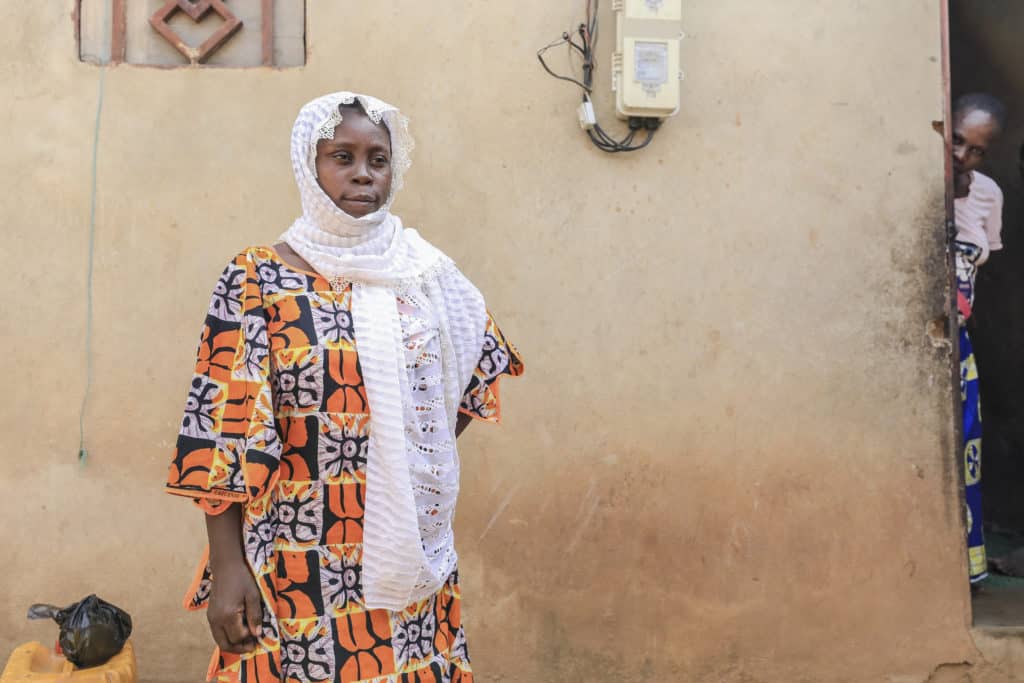
A Glimmer of Hope
In the resigned daily life of women suffering from obstetric fistula, the wait for a “miracle solution” can be long. However, there is light at the end of the tunnel. For Josiane, this glimmer of hope emerged during visits from ALIMA’s partner AVLF-EN to her community. “I often saw ALVF-EN community relays in my neighborhood, but I didn’t know exactly what they were doing. One morning, as they were passing through my neighborhood, I approached them to talk. I’m glad I did because that’s how my healing began. Today, I can say that I am very lucky because, after my time with the association, I received care. Shortly after, a fistula repair campaign began.”
For Haouat, who also benefited from the same repair campaign, the decision to undergo surgery marked a pivotal moment. “Participating in this campaign and having surgery was a personal choice. The stakes were high as I had been suffering for 25 years. The only thing I stood to lose was this illness. I then asked if I could have surgery and my request was approved.”
Rebirth
“Since my operation, I feel alive again. Everything went well. It was like a rebirth for me, I was freed from a heavy burden. Since last year, I haven’t found words strong enough to express how happy I am,” shares Haouat.
For Josiane, the operation was a blessing: “It’s been almost two months since I had surgery and everything went well. The pain, the discomfort, and the itching are all gone. I am healed and feeling much better. The surgery took place at Maroua Regional Hospital. I am deeply grateful to ALIMA and its partners for everything. Without their intervention, I wouldn’t be happy or healthy right now.”
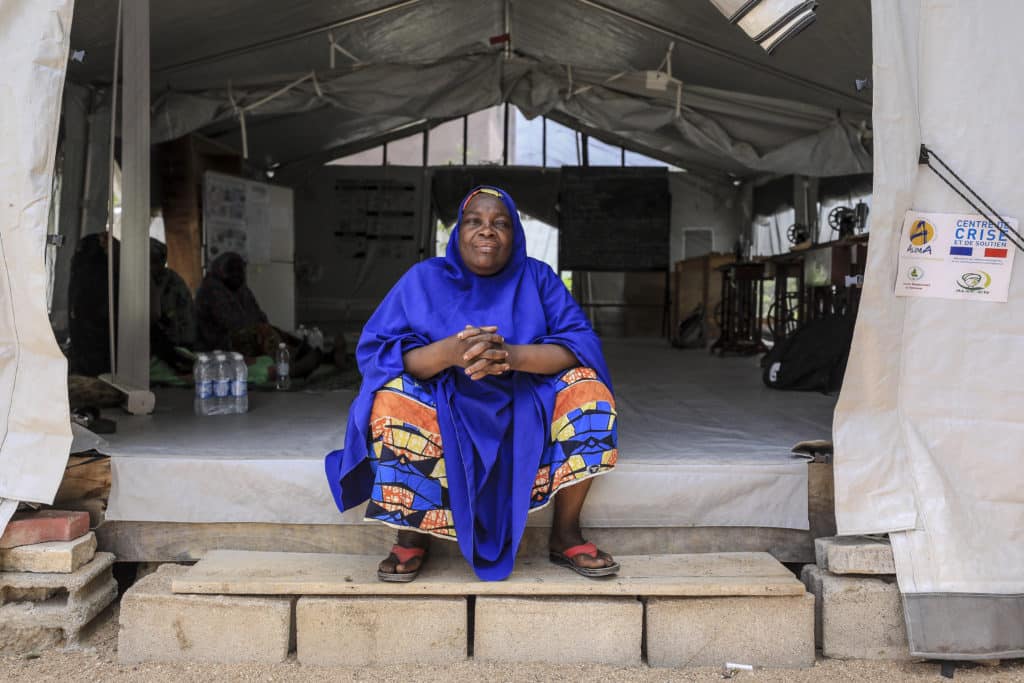
Breaking the Wall of Silence, Erasing Stigma
The operation unlocks a path of opportunities for women to regain their dignity. Haouat and Josiane are grateful for the support they received. Both have decided to share their advice and experience to help other women break free from the silence and taboo in which they are trapped. For Josiane, “Fistulas are not openly discussed, but I give advice and share my experience with women facing the same challenges I once did. There is no shame in being ill, solutions exist, you just have to have the courage to talk about it.”
Haouat joins ALVF on community outreach efforts: “Whenever possible, I accompany the community relays during their meetings. I hope more women suffering from obstetric fistulas can receive the surgery they need. If my story can convince them to seek treatment, then I will be even happier.”
Women with obstetric fistula are more likely to experience gender-based violence, leading to isolation and stigma. This exacerbates the loss of their livelihoods, and hinders their empowerment. It is a health problem whose effects, when prolonged, are devastating.
Thanks to the support of the Crisis and Support Center (CDCS) of the French Ministry of Europe and Foreign Affairs, ALIMA, in partnership with the Cameroonian association ALVF-EN and Maroua Regional Hospital, participates in eradicating this affliction. Their joint initiative, “Medical-surgical Assistance and Empowerment Project for Women and Children Affected by Lake Chad Basin Crises in Cameroon’s Far North Region”, aims to eliminate obstetric fistula, a condition largely eradicated in industrialized nations.
Cover picture © Daniel Beloumou/ ALIMA


